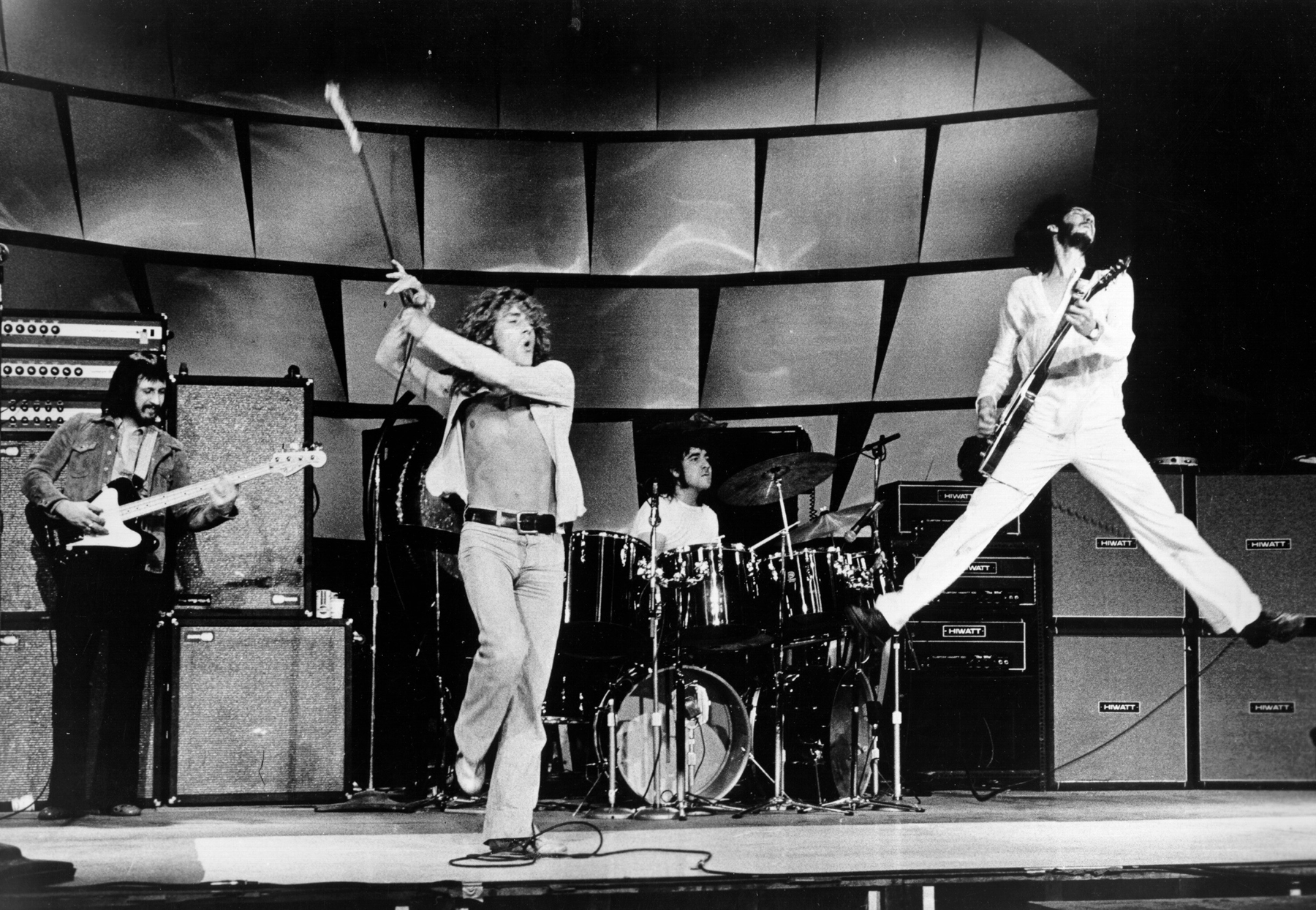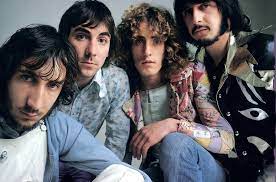

Why Baba O’Reily is the Greatest Rock Song of All-Time
I’ve been putting this one off for awhile. Perhaps it’s because I’ve just had too many other pressing topics to write about. Perhaps it’s because something so purely subjective hardly seems the stuff for TRUTH: In 1000 Words or Less. Or perhaps it’s simply because I wasn’t entirely sure if this was a topic many of my readers would give a damn about. But it’s not because I am wrong. Because I’m not.
“Baba O’Reily”, often incorrectly referred to as “Teenage Wasteland” due to the repetition of the lyric throughout the song, was released as s single in October of 1971. It is the lead song on The Who’s most popular and well-received album, the seminal classic Who’s Next, also released in 1971. The song was originally intended as part of a concept album tentatively entitled Lifehouse that Pete Townshend envisioned as the follow-up to his highly successful rock opera Tommy, itself an album that dramatically changed the history of rock music by pushing the parameters of tightly-constructed pop singles to weave a comprehensive thread through an entire album and integrated story into the construction of theme. The title of the song is an homage to two of Townshend’s most pervasive musical and philosophical influences: Meher Baba and Terry Reily. The result is nothing short of pure musical genius.
In Lifehouse a Scottish farmer named Ray would have sung the song as he gathered his wife Sally and his two children to begin their exodus to London. Although the song is ironically often cited as a celebration of the ravages of youth and the drug culture (We’re all wasted!”), the line “teenage wasteland” was actually inspired when Townshend looked out over the field of rubbish left over by fans after the band’s 1969 gig at the Isle Of Wright Festival. In another interview, Townshend stated the song was also inspired by “the absolute desolation of teenagers at Woodstock”, where audience members were strung out on acid and 20 people had brain damage. But in the end, regardless of the sources of the song’s inspiration, “Baba O’Reily” stands as a testament to the undying spirit of youth and the seething angst which came to define a generation.
After all, it is just that angst that illustrates what Rock ’n’ roll has meant within the landscape of popular music post-1960 and the transformative power to fuel a rebellion to preconceived notions of culture and society. Rock music challenged the individual to resist the pressures of societal conformity and push back with an assertion of their own autonomy and independence. Rock music came to be a form of cultural revolution as young people refused to accept the oppressive sameness of the highly conventional 1950’s and instead demanded a time and place of their own making, a world that looked much more like themselves than the parents they no longer wanted to be. And no song has ever fully captured the all-pervasive angst, that impassioned rebellion with cause and purpose, better than “Baba O’Reily” by The Who.
 The song opens with a calling to the devastation of the current circumstances, a depravity intended to be much more metaphorical and internal than it is a real-world hunger, “Out here in the fields/ I fight for my meals/ I get my back into my living”. Set in this backdrop of a spiritual yearning, the tone turns immediately to an avowed declaration of self-determination, “I don’t need to fight/ To prove I’m right/ I don’t need to be forgiven.” And it is right there in that last line that Townshend gives a giant middle finger to a previous generation he no longer needs the approval of, a society he has absolutely no further desire to adhere to. It is an open permission to an entire generation of youth to define their own lives, to free themselves of the chains of onerous societal indoctrination and become the versions of themselves that they want to be.
The song opens with a calling to the devastation of the current circumstances, a depravity intended to be much more metaphorical and internal than it is a real-world hunger, “Out here in the fields/ I fight for my meals/ I get my back into my living”. Set in this backdrop of a spiritual yearning, the tone turns immediately to an avowed declaration of self-determination, “I don’t need to fight/ To prove I’m right/ I don’t need to be forgiven.” And it is right there in that last line that Townshend gives a giant middle finger to a previous generation he no longer needs the approval of, a society he has absolutely no further desire to adhere to. It is an open permission to an entire generation of youth to define their own lives, to free themselves of the chains of onerous societal indoctrination and become the versions of themselves that they want to be.
But the song is not solely defined by a counter-reaction to the times, a response formed from the negative denial of the current circumstances. Indeed there is a calling to a brighter future as a younger generation forges its own identity out of the wasteland of a previous generation. “The exodus is here/ The happy ones are near/ Let’s get together before we get much older.” Here, Townshend seems to envision a more communal sense of youth, rallying them to embrace this time and place as they come together to re-invent a world that no longer suits them. Yes, it may indeed be a wasteland of social deprivation that lies before them, but that simply provides a blank canvas, a tabula rasa, on which to write their own sense of identity as they redefine the future that awaits them.
And that has always been what Rock has done when it is at its cultural best. It inspires transformation and societal change. It stokes rebellion not just for the purpose of rebellion itself, but rather to spur a new generation to rethink the ways of the world and the way we interact with each other. The 1960’s and 70’s were a time of true social revolution, a change in the way the world was. From the Civil Rights Movement to the Sexual Revolution to the activism opposing the War in Vietnam, this period in our nation’s history forever reconstituted the relationship between the individual and society and ushered in a new era of personal freedom and equality.
Sure I am aware that Rolling Stone ranked “Baba O’Reily” as the 349th greatest Rock song of all-time. But what the fuck do they know? They have Smells Like Teen Spirit” listed at #9 for crying out loud, and I could teach those guitar chords to my 10-year old nephew in a little over 30 minutes. I know a case could be made for Dylan, the Beatles or Zeppelin, and heaven knows I love all of them, but in the end, there is no better anthem for the transformative power of music than “Baba O’Reily”.
But, of course, I am always open to suggestions…. You can leave yours on my website or any of TRUTH’s other social media platforms.






